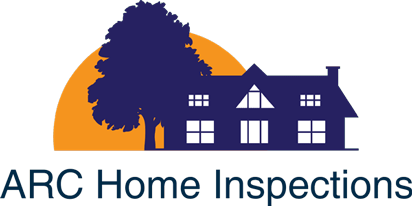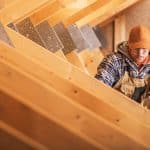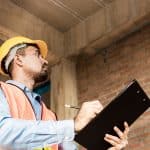Buying a home can be an exciting and overwhelming experience, especially if you’re a first-time homebuyer. It’s easy to get caught up in the excitement of finding your dream home and making an offer, but it’s essential to remember that a home purchase is a significant financial investment. One of the most crucial steps in the home-buying process is the inspection. A thorough inspection can uncover hidden issues that could cost you thousands of dollars in repairs down the road.
Inspection Negotiation: The Ultimate Guide to Getting the Best Deal on Your Dream Home!
…is a comprehensive guide that will take you through the entire inspection process. Whether you’re a first-time homebuyer or a seasoned real estate investor, this guide will equip you with the knowledge and skills needed to negotiate the best deal on your dream home.
In this guide, you’ll learn about the different types of inspections and how to choose the right inspector for your needs. You’ll also discover what to expect during the inspection process and common issues that inspectors often find. Additionally, the guide will equip you with negotiation tactics for inspection issues and strategies for handling major inspection problems.
As a buyer, it’s essential to understand your rights and responsibilities during the inspection process. This guide will provide you with a clear understanding of your rights as a buyer, as well as tips for successful inspection negotiations in a competitive market. Whether you’re purchasing an existing home or a new construction home, this guide will provide you with the information you need to make informed decisions and get the best deal on your dream home.
The Importance of Inspection in Real Estate Transactions
When it comes to buying a home, the inspection is one of the most critical steps in the process. A home inspection is a visual examination of the property to identify any defects or issues that could affect its value or safety. A thorough inspection can uncover hidden problems that could be costly to repair or could even make the home unsafe to live in.
An inspection is typically conducted by a licensed inspector who is trained to identify issues that may not be visible to the untrained eye. This may include issues with the foundation, roofing, electrical systems, plumbing, and more. The inspector will provide a detailed report of their findings, which the buyer can use to negotiate repairs or a lower purchase price.
It’s essential to remember that a home inspection is not a pass/fail test. Instead, it’s an opportunity for the buyer to gain a clear understanding of the condition of the property they are purchasing. Even a brand-new home can have issues, and a thorough inspection can ensure that these issues are identified and addressed before closing.
In some cases, the seller may choose to have an inspection done before listing the property. This is known as a pre-listing inspection, and it can be beneficial for both the buyer and the seller. If the seller addresses any issues found during the inspection, it can make the home more attractive to potential buyers and can even result in a higher sale price. Additionally, a pre-listing inspection can give the buyer added confidence in the condition of the property.
In summary, a home inspection is a critical step in the home-buying process. It’s an opportunity for the buyer to identify any issues with the property and negotiate repairs or a lower purchase price. Additionally, a pre-listing inspection can be beneficial for both the buyer and the seller. Next, we’ll explore the different types of inspections available and how to choose the right inspector for your needs.
Understanding the Different Types of Inspections
When it comes to purchasing a home, there are several different types of inspections that may be necessary. Understanding these different types of inspections can help you choose the right inspector for your needs.
The most common type of inspection is a general home inspection. This is a comprehensive inspection that covers all major systems and components of the home, including the roof, foundation, plumbing, electrical systems, HVAC, and more. A general home inspection can provide a thorough overview of the condition of the property and identify any major issues that need to be addressed.
In addition to a general home inspection, there may be other types of inspections that are necessary depending on the property and its location. For example, if the home is located in an area with a history of termite or other pest infestations, a pest inspection may be necessary. A septic inspection may also be necessary if the property has a septic system instead of being connected to a public sewer system.
If the home was built before 1978, a lead paint inspection may also be necessary. Lead paint was commonly used in homes built before 1978 and can pose a significant health risk, particularly for young children.
When choosing an inspector, it’s essential to ensure that they are licensed and qualified to perform the necessary inspections. Additionally, you’ll want to choose an inspector with experience inspecting homes in the area where you are purchasing.
In summary, there are several different types of inspections that may be necessary when purchasing a home. Understanding these different types of inspections can help you choose the right inspector for your needs. Next, we’ll explore how to choose the right inspector for your needs.
Choosing the Right Inspector
Choosing the right inspector is essential to ensuring that you get a thorough and accurate inspection of the property you are considering purchasing. Here are some key factors to consider when choosing an inspector:
- Licensing and Qualifications
- It’s essential to ensure that the inspector you choose is licensed and qualified to perform the necessary inspections. Look for inspectors who are members of professional organizations such as the International Association of Certified Home Inspectors (InterNACHI) or the American Society of Home Inspectors (ASHI).
- Experience
- You’ll want to choose an inspector with experience inspecting homes in the area where you are purchasing. An experienced inspector will have a better understanding of the unique issues that may be present in homes in the area and will be better equipped to identify potential problems.
- Reputation
- Look for an inspector with a good reputation in the industry. You can ask for references from past clients or look for online reviews to get a sense of the inspector’s track record.
- Availability
- Make sure the inspector you choose is available to perform the inspection within your desired timeframe. You don’t want to miss out on a property you are interested in because the inspector is booked up.
- Cost
- While cost shouldn’t be the only factor you consider, it’s essential to understand the costs associated with the inspection process. Ask for a detailed breakdown of the costs and make sure you understand what is included in the inspection.












